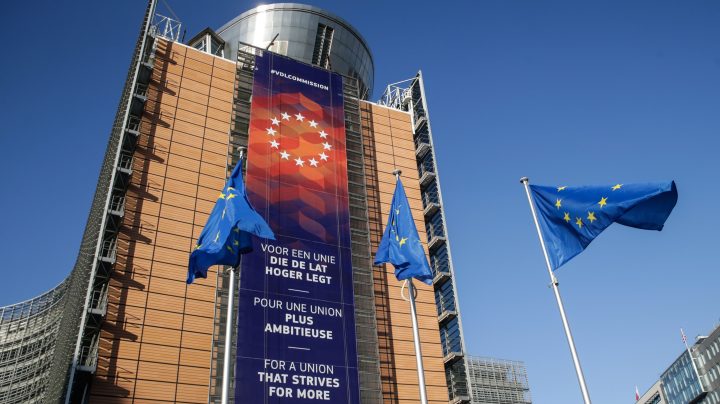
Europe could dodge a predicted recession, thanks largely to energy policy
Europe could dodge a predicted recession, thanks largely to energy policy

The United States is far from the only country that’s feeling anxious about a possible recession. The member countries of the European Union have been bracing for a slowdown too. Economists there have been predicting the bloc’s economy would barely grow at all this year.
But in Brussels on Monday, the European Commission updated its economic forecast — and it now predicts the 27 countries of the EU will “narrowly” avoid falling into recession this year and that its economy is expected to grow eight-tenths of a percent.
What is going better than expected in Europe’s economy?
The first positive thing that happened to Europe has to do with energy. Last summer, the prospects looked dire. Russia, which invaded Ukraine on Feb. 24, was squeezing the supply of natural gas Europe depends on to heat homes and run factories in retaliation for supporting Ukraine.
“There was a lot of alarmist stories about rolling blackouts and Kremlin propaganda saying that Europe would freeze and all of that,” said Jacob Kirkegaard, a Brussels-based economist. He works with the Peterson Institute for International Economics, and he said those threatening messages essentially backfired.
“You did have a major price spike in natural gas over the summer,” Kirkegaard explained. “And lo and behold, when something goes up in price — even if you need it a lot — you start using less of it. And that’s exactly what happened in Europe.”
Households and businesses cut energy demand by 20%, and the weather cooperated.
“A mild winter through most of December and early January certainly helped,” Kirkegaard said.
Meanwhile, Germany has been furiously building offshore terminals to import liquefied natural gas from places other than Russia.
“Gas prices have come down tremendously. We’re looking at dramatically declining inflation in Europe, which is very positive,” Kirkegaard added.
European consumers have noticed, said Chris Jackson at public-opinion firm Ipsos.
“January and February — definitely an improvement in consumer sentiment,” Jackson said. “And I think that is people on the ground reflecting the sort of more-positive-than-expected realities about how the economy’s doing for them.”
The European economy as a whole does still face risks from Russia’s war in Ukraine, according to Cornell economist Eswar Prasad, but somewhat less than a year ago when the war started.
“People have sort of unfortunately gotten used to the notion that this might be a long-standing conflict,” Prasad said.
He added that European businesses have adjusted their trade flows and supply chains to get around the disruptions of war.
There’s a lot happening in the world. Through it all, Marketplace is here for you.
You rely on Marketplace to break down the world’s events and tell you how it affects you in a fact-based, approachable way. We rely on your financial support to keep making that possible.
Your donation today powers the independent journalism that you rely on. For just $5/month, you can help sustain Marketplace so we can keep reporting on the things that matter to you.











